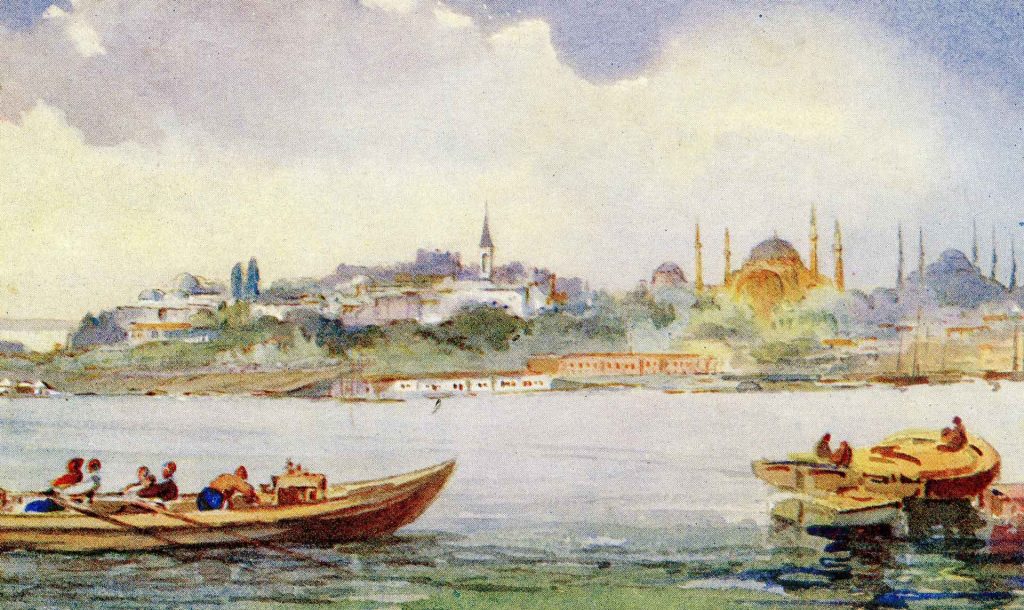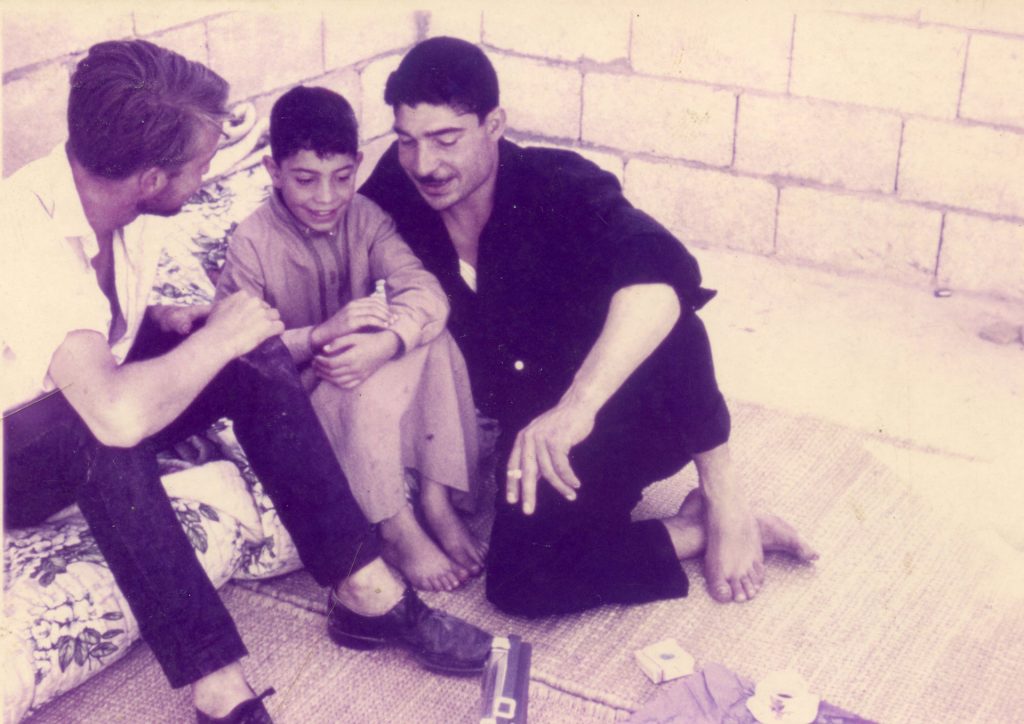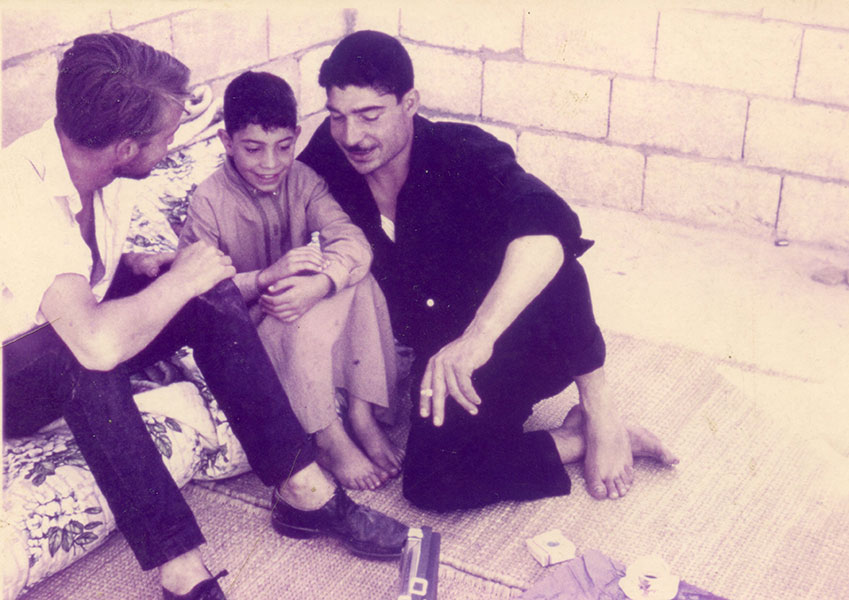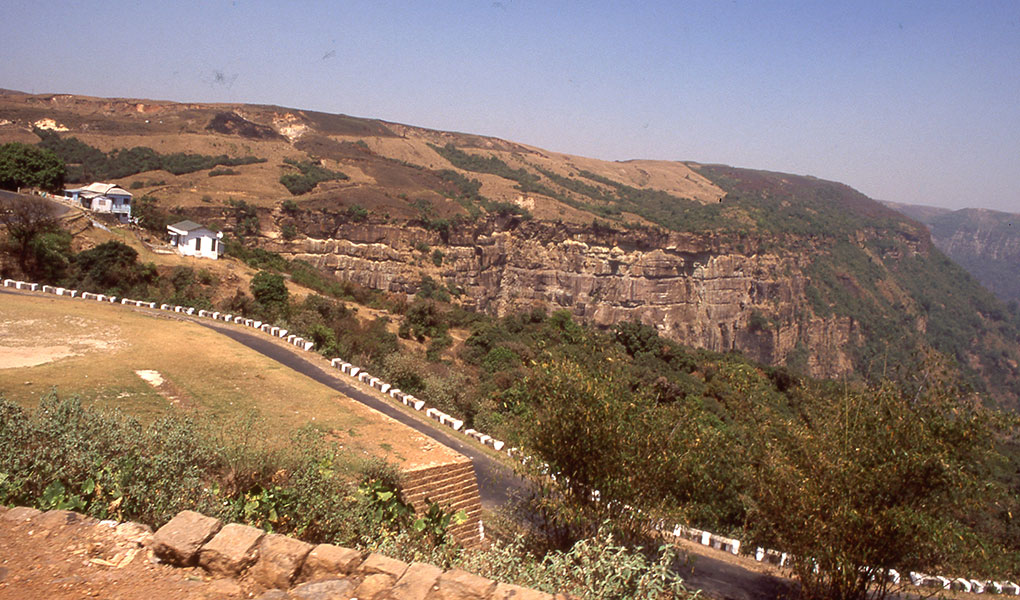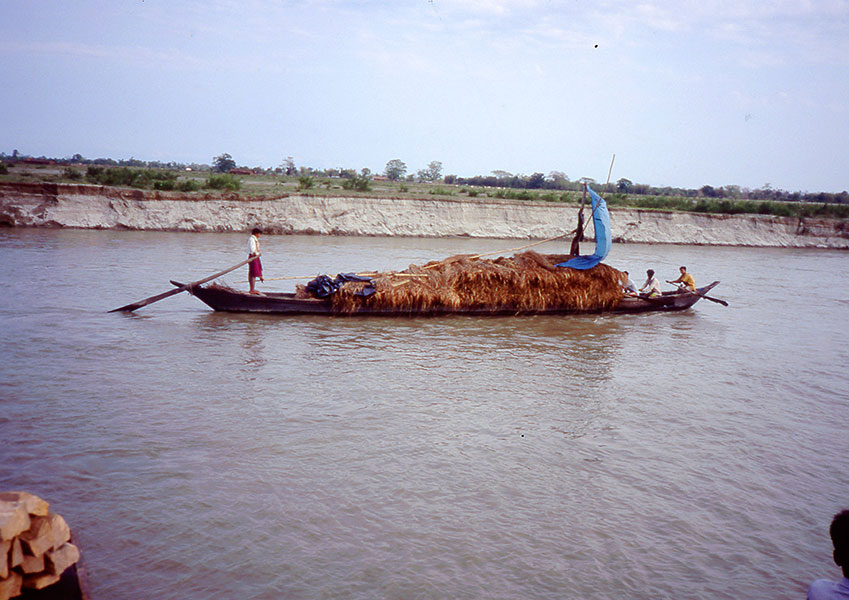4. East Against The Trend – 2

3. East Against The Trend – 1
April 30, 2020
5. Into India
May 14, 2020T he little boat slipped into Cesme. In a new continent, we slept on the floor of Izmir's crowded hostel. In the ill-lit night, failing to recognise a first crouch loo, I pissed in the water can. Life is a perpetual lesson...to what end? Hitching together was better; conversation between lifts. But the waits were short. Nice drivers, too. They'd stop en route and feed us yellow Smyrna figs - the best – nicked from roadside trees. Werner, dominant, with good English, was keen on archaeological sites; fine by me. After Ephesus, we hit the south coast and at St Paul's Perge slept on a pile of chaff beside the wrecked theatre. Hospitable masons restoring another theatre at Aspendos offered food and shelter. As we swam in the river, Picasso-like, a near-naked youth rode in to wash his horse. Side, once a major port, had a small lokanta (restaurant) and also theatre to sleep in, despite warnings of 'steinschlangen' - vipers. Folk puzzled over a German and a Briton being friends. They preferred Germans, mocked Makarios. Beneath the sea squared blocks of marble were dotted with black urchins. The red-tiled village was topped by Turkey's white-crescent scarlet flag. All is concrete now!
The hitching was marvellous. North to Konya, with mosques and dancing dervishes, then to Karaman and Paul's Tarsus, where, in a clear sky, migrating storks circled ever higher on a thermal. We sat in a lorryload of cotton and the pantaloons of the men behind the cab ballooned in the wind. I wrote from a moonlit field in Antakya – old Antioch – and woke surrounded by dried turds: the town's convenience. At the frontier, with 7km between border posts, sleeping in no-man's-land created a missing day when checking into Syria.
The cultural change was abrupt: Turkey's flat caps gave way to Arab keffiyehs and there were domed mud houses. A friendly Christian family showed us Aleppo, its fort and covered market, also doomed for destruction. An elderly Lebanese librarian explained the injustice inflicted on Palestine. After the holocaust and propaganda films like 'Exodus', it was easy to overlook Palestine's fate. “What was their crime? Why didn't the allies clear part of Germany for the Jews?” I never forgot.
There was a misunderstanding on the bus southwards: were we cheated? The conductor, Ahmed fed us and put us up in Hama. A photograph in his house, me wearing dirty shoes indoors, is a constant rebuke. He showed us vast norias - irrigation waterwheels - the slaughtering of camels - a jugular cut and purple blood turned scarlet as it fell. Camel for supper in Homs, now more ruins. A siesta in Damascus beside the fountains of the Azem Palace before entering Jordan atop the cab of a lorryload of sheep, to halt in Jerash, its classical ruins around a remarkable colonnade. Friendly police let us doss down outside their post. At Amman Armenians provided tea and Circassian footballers accommodation in their club. They introduced us to two men who, as boys, had their tongues cut out by Jewish terrorists.
Other Armenians, dipping low to the Dead Sea, drove us into Jerusalem with the golden Dome of Rock rising from the walled city. There, the narrow streets sold crowns of thorns, crucifixes, soppy pictures of Jesus; the Holy Sepulchre was dim in candle light and incense. A boy with a lemon ice-lolly tried to point out his grandfather's abandoned house through the wall marking the then-limit Israel's invasion. We hitched to Bethlehem, a busy tourist town, then got a Black Maria, complete with arrested thief, to Hebron, where camels hung in the market, skinned but for the head, a bouquet of marigolds in each arse. A truck pulled up bound for the next destination, Jericho. There was a condition: we must say we hated Jews. We reached Jericho with someone less exacting.
The Great Syrian Desert lay ahead. Werner, with an Iraqi visa, continued through the frontier with our lift. My visa required a phone call to Baghdad. The lines were down. Finally relenting, they granted a permit to be upgraded in Baghdad. A Palestinian driver took me along with his mother. A policeman joined us later. It was a tough – he had come from Jerusalem and worked in Kuwait, still 450 km. The best way to keep him awake was to praise Israel and Zionism. It worked, but grief and fury made his steering unsteady. We slept briefly, until a misshapen sun rose from an endlessness of stony desert, then descended into a forest of date palms and crossed the Euphrates. My father's telegramme in Baghdad was brief: “passed exam funds Istanbul”.
No rush! We hitched to Shiite Najaf & Khoufa, to Hilleh and Babylon, Ur of the Chaldeas and its ziggurat. Chained political prisoners waited their fate at Ur Junction. From Basra across the Shatt-al-Arab into Iran. To Esfahan, radiant with turquoise-tiled mosques, where we shared a family meal beside a marble fountain, which poked through a fine carpet. Through Teheran and Tabriz, cadging 1nights in jail. Everywhere the Shah stood, uniform enriched with golden epaulettes, right arm ever raised. The secret police, Sevak, busily kept him upright. This was the regime America and Britain liked, having scuppered Moussadegh's brief democracy.
A souvenir: on my caravan's floor, a Persian carpet, a worn, rough red rug, coarsely-knotted. A man in Tabriz carried it rolled. I gave him £5, only to be arrested in Salzburg. Valuable rugs had disappeared from a lorry. The owner drove from Linz, saw my rug and blanched. I was free. Between my parents, seated in front of the fire, their feet wore a bare patch either end. That wreck won't survive my passing.
The Turkish frontier post stood against the stunning snow-capped cone of Ararat. A lift in a military convoy to Erzurum, two of the soldiers lovingly entwined. We separated in Ankara, Werner for Bursa, I to cross the Bosphorus into Istanbul then hitch through Iron Curtain Bulgaria, across Europe to Brussels, sleeping in the station, gaunt and bearded, flattered when two different men tried to pick me up. There was enough cash for the train to London.
India still lay ahead....

